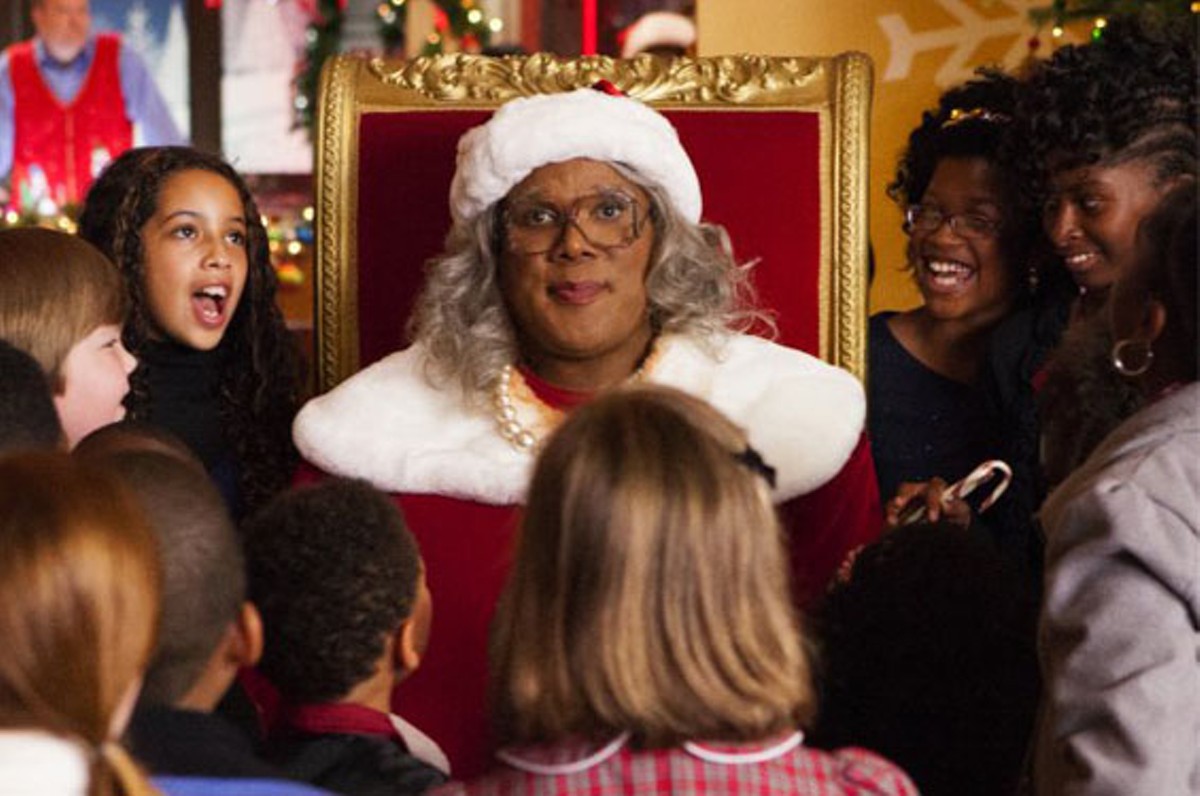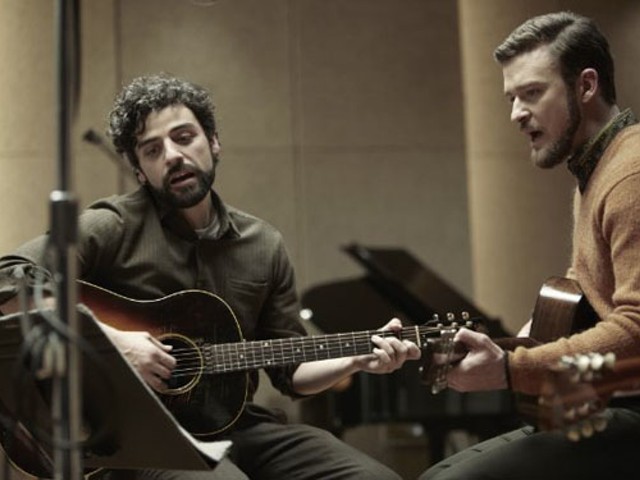Someday there will be a serious academic study on Tyler Perry, the battered and sexually abused child who legally changed his first name at 16 to distance himself from his estranged father and grew rich playing a caricature of his mother in pantyhose and a dress, like a sass-talking Norman Bates. It's a weird homage. By all accounts, Perry adored his mom, the late Willie Maxine, whom he credits with giving him faith, stability, and the inspiration behind his famous character. Did she see herself in Madea, who, according to Tyler Perry's A Madea Christmas, is an ex-stripper and weed-dealer who once had a threesome with Jesse Jackson?
Perry tends to be typecast as the savior of the black box office, which isn't fair to anyone. (Spike Lee called his films "coonery and buffoonery," before apologizing and shrugging that maybe they'll work together some day.) It's not even how he sees himself — why be hemmed in by a single audience? In recent Madea flicks, Perry's deliberately broadened the color spectrum of his cast. Last year's Witness Protection introduced Eugene Levy as Madea's secret grand-nephew. With A Madea Christmas, in which Madea helps an interracial Alabama couple break the news to their families, he goes even further. Behold, Madea's niece's daughter's new father-in-law: Larry the Cable Guy.
Larry and Madea are an oddly perfect pairing. They're both comedians in drag — Larry (né Daniel Lawrence Whitney of Nebraska, some six states away from his fake Georgia twang) just gets to wear pants. Both ain't got no time for political correctness, polite talk, pronunciation standards, and prigs who don't know how to milk a cow. They get along like two hogs in a mud puddle, merrily slinging dirt at everyone that crosses their path: fat people, racist people, rich people, mean people, weak people, Christian people, anti-Christian people, and, a bit hypocritically, bullies. Still, if Perry's next film is Tyler Perry's Madea's and Larry's Thelma and Louise, I'd be first in line to buy a ticket. For now, I'll just settle for picturing the fine bromance of Mr. Perry and Mr. Whitney, standing in costume at the craft services table, talking in normal voices about the socioeconomic complications of doing their blue-collar burlesques — or maybe just cracking fart jokes.
Alas, Larry the Cable Guy won't be in another Madea movie. Almost no supporting characters get two films unless they're also played by Perry. The Madea universe hates cohesion: Family members and friends vanish, new ones magically appear, and while the titles stay the same, Perry's movies bear zero resemblance to the plays that inspired them. (Beside Madea herself, the stage version of A Madea Christmas doesn't share a single character with the flick.) Even within each story — I'm not even sure you can call these films scripted, given the improv revealed in the closing credits gag reel — Perry seems to make it up as he goes along. In one scene, Madea struggles to recall the nativity story for a classroom of kids, explaining that it's when the Virgin Mary J. Blige couldn't get a Motel 6 room with Joe Manganiello. Later, she's aghast that a wealthy sponsor won't let the town celebrate the Christ in their Christmas Jubilee. (If you're uncomfortable that the anti-religion patron is Jewish, someone at the studio must have agreed — on IMDb, his character name has been switched from Sheldon to "Business Owner.")
That misstep sullies what's otherwise the funniest Madea film in a fair stretch. It's leaps better than Witness Protection, the series's nadir, and full of enough accidental comedy and surreal leaps of logic that it could play in a double bill with The Room. It's also, of course, not good by any definition: You might laugh when Madea swoons about getting pregnant to Meat Loaf's "Paradise by the Dashboard Light," but not so hard you'll forgive the predictable plot and not-so-subtle implication that half of all white people are in the KKK. Not that Madea's confrontational brand of comedy gives a damn if you take offense. As she corrects a well-meaning white lady, her name's "not Mandela, honey."






